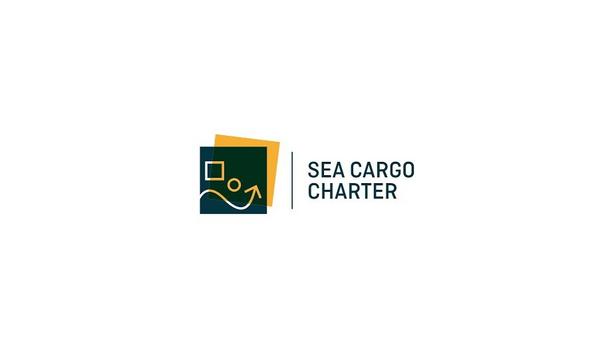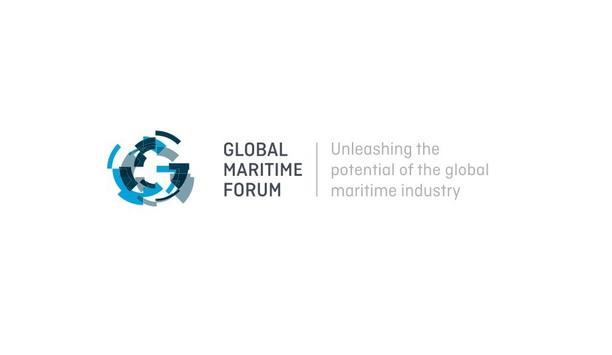Sea Cargo Charter - Experts & Thought Leaders
Latest Sea Cargo Charter news & announcements
DNV’s independent cloud platform, Veracity announces the launch of its new Solution Partner programme, where maritime solution providers integrate their applications and services with the platform. Shipowners and managers can easily connect their verified emissions data from the platform with partnering software applications and services, such as EUA settlement and trading solutions. Solution Partner programme The Solution Partner programme is an expansion of the Veracity Integrated Partner programme, which already offers connectivity to nearly 50,000 vessels for automated emissions reporting by connecting maritime data providers to the Veracity platform and DNV’s verification services. The first solution partners already connected include ABN Amro, Berenberg, Carlton Carbon, Hecla Emissions Management, INTERTANKO, Vanora, Timing Carbon, and zero44. Real-time verified emissions data Mikkel Skou, Executive Director at Veracity by DNV said, “I am glad to see the ecosystem around Veracity’s maritime emissions cloud grow at an increasing speed." Mikkel Skou adds, "Last year, we partnered with leading maritime data providers, so that our common customers could get real-time verified emissions data through an automated and secure process. Now we expand the programme further, enabling customers to easily use verified data in their commercial settlements and with partner solutions.” FuelEU Maritime The need for real-time verified emissions data that can be efficiently used across several solutions The need for real-time verified emissions data that can be efficiently used across several solutions and reporting mechanisms in the value chain is fast growing as the industry increases its decarbonisation efforts. In January 2024, the EU ETS regulations came into effect for several shipping segments, and as of the 1st of January 2025, more segments will follow as FuelEU Maritime comes into play. Poseidon Principles, Sea Cargo Charter The increased regulatory requirements come in addition to already established industry initiatives, such as Poseidon Principles; a global framework from the financial sector for integrating climate considerations into maritime lending decisions, and Sea Cargo Charter; established to assess and disclose climate alignment of ship chartering activities worldwide. "The implementation of EU ETS is a game-changer for the industry, setting new requirements on the quality and frequency of emissions data from vessels,” said Mikkel Skou. Verify data efficiently Mikkel Skou continues, “As the cost of emissions becomes part of the commercial contract, the data behind the numbers must be accurate and verifiable. To help companies in this transformation, we have built the Emissions Connect service from DNV." He adds, "It uses the Veracity data platform and our partner network to efficiently connect operational vessel data with DNV’s verification services, and for further use in partnering software solutions. This way our customers can truly maximise the value of their verified data in an efficient manner.” A secure digital space The Veracity platform serves as a secure digital space where customers can make their own Within the scope of the Veracity Solution Partner programme, the Veracity platform serves as a secure digital space where customers can make their own emissions data available from all partners that have signed up for the partner programme. This data is not directly submitted to DNV but rather securely stored on the Veracity platform, underlining the autonomy of the customers in managing their data. Digital transformation and decarbonisation efforts Pål Lande, Digital Business Development Director, DNV Maritime said, “DNV's role is demarcated within this ecosystem." He adds, "We provide assurance services with the professionalism and independence that stakeholders have come to expect from us, without any undue influence over the data before its submission for verification." Seamless and secure exchange of data Pål Lande continues, "The model further underscores our commitment to advancing digital transformation and decarbonisation efforts in the maritime industry, facilitating a seamless and secure exchange of data that supports our client's business needs while adhering to the highest standards of data integrity and impartiality." The new Solution Partner programme by Veracity by DNV is a major step forward in making the use of verified emissions data easier and more efficient, solidifying the platform’s ambition to deliver trust and connectivity to industry digitalisation.
The 33 Signatories, which disclose the climate alignment of their chartering activity for 2022, account for more than 17% of total bulk cargo transported by sea over the year. Their average reporting rate has increased since last year to 90%. It is important to highlight, that it is not possible to compare the scores of individual Signatories to one another for several reasons: Signatories have different portfolios, different ship types and different numbers of voyages. Furthermore, the Signatories have different operational and trade profiles with particular trade characteristics that affect their annual activity alignment. Sea Cargo Charter Annual Disclosure Report In this second edition of the Sea Cargo Charter Annual Disclosure Report, the average climate alignment of Signatory companies is at the same level as in 2021 but the variation of data has decreased significantly. This is due to several reasons, including changes carried out to the chemical and liquified gas tanker baselines, as well as trade patterns and better operational efficiency. Climate alignment of Signatory companies is at the same level as in 2021 but data reduced quite “While achieving full decarbonisation by 2050 may seem far off, the maritime industry is well aware of the importance of decisions taken now in order to achieve this goal. The data in the Sea Cargo Charter report shows Signatories’ dedication to measuring and reporting transparently their climate impact as an essential first step towards reducing emissions,” says Rasmus Bach Nielsen, Chair of the Sea Cargo Charter Association and Global Head of Fuel Decarbonisation at Trafigura Calls for ambitious MEPC80 “We would like to add our voice to those calling for ambitious targets on decarbonisation to be adopted at the IMO meeting to adopt a revised Strategy for Reduction of Greenhouse Gas Emissions from ships,” says Rasmus Bach Nielsen. Nielsen hopes and believes the International Maritime Organisation (IMO) will agree on significantly more ambitious targets at the upcoming Marine Environment Protection Committee meeting (MEPC80) in July. Importance of a regulatory framework “Achieving these reduction targets is essential for the industry to play its role in addressing climate change, and it will require an appropriate policy framework that allows companies to take the commercial decisions needed to accelerate decarbonisation and it will also assist Sea Cargo Charter in establishing future enhanced baseline targets,” adds Bach Nielsen. Signatories continued the ongoing discussion of how to make the reporting more robust Bach Nielsen highlights the importance of a regulatory framework. “The key is that while it is fine to have big targets we also need a regulatory framework where it can be realistic to reach these,” he says. At the association’s annual meeting in April, Signatories continued the ongoing discussion of how to make the reporting more robust and whether to raise the ambition level. However, many members were keen to wait for the outcome of the MEPC80 meeting, as the results will have big implications on the industry’s ability to deliver on the Paris Agreement temperature increase goal. Complex scores The simple average score of reporting Signatories in the Sea Cargo Charter report, i.e., all reported climate alignment scores calculated with equal weight, was 1.6% and the median was 2.7%. Without data on each Signatory’s total shipping activity, it was not possible to calculate a weighted average, which would be a more appropriate statistic to summarise the distribution of scores given that Signatories have different trades and levels of activity. Scores ranged from − 21.8% to 21.4%, and 60% of reporting Signatories had a score of +5% or less. These alignment scores are based on an average reporting rate of 90% from Signatories of their annual activity. A negative score implies alignment while a positive score denotes misalignment to the decarbonisation trajectory. Developing cooperation with business partners “Our Signatories recognise that their role in the industry affords them opportunities to promote responsible environmental stewardship and drive change throughout the maritime value chain. The data in the report is thus a basis for further developing cooperation with shipping business partners. The data will provide insights that enhance our joint strategic decision-making and help us address climate change,” said Eman Abdalla, Vice Chair of the Sea Cargo Charter Association and Global Operations Director at Cargill Ocean Transportation Eman Abdalla elaborates: “To make our voice louder, we are looking to open up our membership scope to not only charterers and cargo owners but also shipowners so that they can join us and make the Sea Cargo Charter a truly industry-wide initiative where we together unite and work towards one global transparent and standardised emission reporting system.” According to Eman Abdalla, it ought to be in the interest of all industry stakeholders to have common alignment and transparency on emissions.
At the 2023 Annual Meeting of the Sea Cargo Charter Association in Copenhagen, the 36 Signatories elected new Steering Committee members and discussed past and future activities. In total, 12 member companies were elected to the Steering Committee to coordinate the Association on behalf of its members. The Sea Cargo Charter is a framework for assessing and disclosing the climate alignment of chartering activities. Charterers and cargo owners play an important role in the industry’s path to zero emissions. Transparency and standardisation Transparency and standardisation are important steps on that journey for both the cargo owners and ship owners, because it enables them to have a data-based conversation on their carbon footprint. Association publishes its Annual Report, which details the climate impact of the member companies “I am honoured to be elected as Chair of the Steering Committee, and excited to continue all the great work that is already underway. The mindset regarding climate alignment has changed faster than we could have imagined in the past few years, and I look forward to continuing the work on global standardised and transparent emission reporting which will assist everyone in pushing shipping’s green transition forward,” says Rasmus Bach Nielsen, Global Head, Fuel Decarbonisation, Trafigura and new Chair of the Sea Cargo Charter Association. Each year, the association publishes its Annual Disclosure Report, which details the climate impact of the member companies. The next report will be published on June 14. Improvements and interventions Rasmus Bach Nielsen is replacing Jan Dieleman as Chair, stepping up from Vice Chair. Claire Wright (Shell) was re-elected as Treasurer of the Steering Committee. The association has grown significantly since it was established in October 2020, but the ambition is to get many more new members, for example from the mining industry and from a wider geographical spread. “We have accomplished so much with the Sea Cargo Charter in the past few years. Establishing a common, global baseline to assess and disclose chartering activities’ climate alignment is a critical step in the decarbonisation efforts of the industry as it provides insights for continuous improvements and interventions. I am confident in the newly elected Steering Committee and look forward to following future progress,” says Jan Dieleman, President, Cargill Ocean Transportation. Expanding the membership Sea Cargo Charter is a critical framework that brings transparency, standardisation" Eman Abdalla, Global Operations Director, Cargill Ocean Transportation was elected as the new Vice Chair of the Association, and she looks forward to expanding the membership. “The Sea Cargo Charter is a critical framework that brings transparency, standardisation, and alignment to the shipping industry. I am honoured to be elected as Vice-Chair and look forward to working tirelessly to expand our membership base across industries and geographies to achieve our goal of widespread adoption, making zero carbon shipping a reality,” she says. Sea Cargo Charter Association Steering Committee The Sea Cargo Charter Association Steering Committee counts 14 member companies. The Steering Committee now consists of: Rasmus Bach Nielsen, Trafigura (Chair); Eman Abdalla, Cargill Ocean Transportation (Vice Chair); Claire Wright, Shell (Treasurer); Engebret Dahm, Torvald Klaveness; Hans Christian Jensen, ADM; Heidi Aakre, Equinor; Henrik Røjel, Norden; Jeff Wakker, Viterra; Jürgen Willemsen, Dow; Justine Clark, Shell; Marcio Valentim Moura, Bunge; Martin Viquesnel, Louis Dreyfus Company; Matt Turns, Chevron; Patrick Heise, ADM; Peter Lye, Anglo American; Raghav Gulati, Anglo American; Seb Landerretche, Louis Dreyfus Company; Sebastien Roche, TotalEnergies. Global Maritime Forum act as the secretariat for the Sea Cargo Charter.





